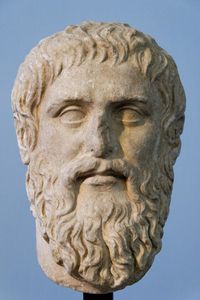One of the most influential and renowned Greek philosophers, Plato, was born into a prestigious Athenian aristocratic family, with some even considering him the greatest Greek writer of prose. This remarkable individual had the opportunity to meet and become the disciple of the esteemed Socrates around 407 BC, learning from him the ways of philosophy.
Tragedy struck when Socrates was executed in 399 BC, and Plato, along with his fellow disciples, took refuge under the guidance of Euclid in Megara. Following this period, Plato embarked on an extensive journey that took him to Egypt, Sicily, and Italy, where he encountered various influential figures, including the Pythagorean mathematician Archytas of Taras (Tarentum),a follower of the semi-legendary Pythagoras of Samos.
After his travels, Plato began teaching his pupils near the grove of Academus outside Athens in 388 BC and established the Academy, which would become his philosophical and intellectual hub. His school was named after the location, and it was here that he would spend the next 50 years developing his philosophical and literary pursuits.
Plato's philosophical and literary activities were marked by his prolific writing, which can be broadly categorized into two main areas: letters and dialogues. The 13 letters, primarily addressed to Dionysus the Tyrant of Syracuse, focus on offering political advice, while the 26 dialogues can be further divided into three categories based on his travels: early, middle, and late.
Some of Plato's most famous and enduring works include the Protagoras, Gorgias, Ion, the Republic (where he critiques the power and pretension of literature),Cratylus, Phaedrus, Sophist, and Laws.
According to some accounts, Plato's death occurred either at a wedding feast or while he was in the midst of writing. He was laid to rest at the Academy, his beloved school and intellectual home.














